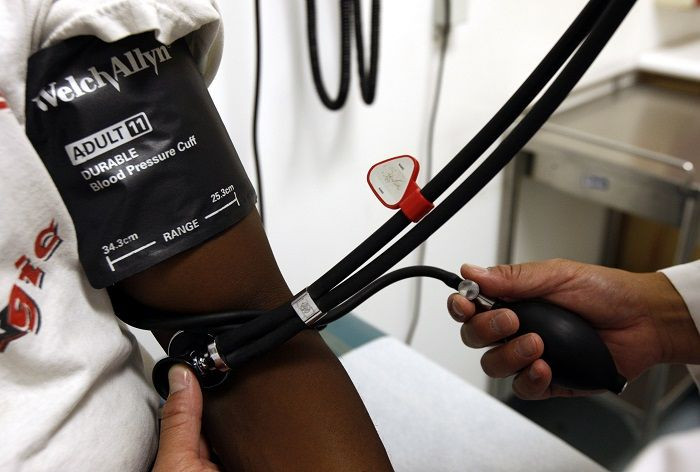Blood Pressure Medication Benefits Those Without Hypertension, Could 'Save Millions Of Lives'

Blood pressure drugs have the potential to save millions of lives, including those who don’t suffer from hypertension, according to new research published in The Lancet . Results from a meta-analysis led by cardiologists at the University of Oxford suggests these drugs should also be offered to people who face higher risk of heart attack and stroke, regardless of their blood pressure at the start of treatment.
Lead study author Kazem Rahimi and his colleagues are calling for the revision of current guidelines for blood pressure-lowering drugs, including those provided by the National Institute for Health and Care Excellence (NICE) and the European Society of Hypertension. Both organizations recommend starting patients on medication after they reach 130/85 mmHg, Health Day reported; for the elderly, it’s 150/90 mmHg.
In the study, researchers analyzed findings from 123 large-scale randomized trials involving more than 600,000 people comparing different blood pressure targets from January 1966 to July 2015. They found blood pressure-lowering medication significantly reduced the risk of major cardiovascular events, stroke, heart failure, and death.
Specifically, they found that a 10mmHg reduction in systolic blood pressure — the top number of a blood pressure reading — was associated with a 13 percent reduced risk of death from any cause. The risks of major cardiovascular disease events and heart disease were reduced by about one fifth, and stroke and heart failure by about a quarter.
"Our findings clearly show that treating blood pressure to a lower level than currently recommended could greatly reduce the incidence of cardiovascular disease and potentially save millions of lives if the treatment was widely implemented," Rahimi, who is also deputy director of The George Institute for Global Health at the University of Oxford in England, said in a statement.
Elevated blood pressure reportedly affects one out of three U.S. adults. This condition increases the risk for heart disease and stroke, which are two of the leading causes of death for Americans, and is responsible for almost 1,000 deaths a day in the U.S., according to the Centers for Disease Control and Prevention.
"The benefit people get from blood pressure lowering was irrespective of what their base-line blood pressure was. There was no evidence that people whose blood pressure was lower did not have the same benefit as people whose starting blood pressure was high," Rahimi explained in a video for The George Institute.
In addition to revising the current blood pressure lowering protocol, Rahimi and his fellow cardiologists recommend a shift from "rigid blood pressure targets to individualized risk-based targets," even when blood pressure is below 130 mmHg before treatment.
The findings provide "strong support" for offering blood-pressure lowering drugs to "all patients at high risk of having a heart attack or stroke, whatever their reason for being at risk," Rahimi added.
Source: Ettehad D, Emdin C, Kiran A, Et Al. Blood Pressure Lowering For Prevention of Cardiovascular Disease and Death: A Systematic Review and Meta-Analysis. The Lancet. 2015.



























